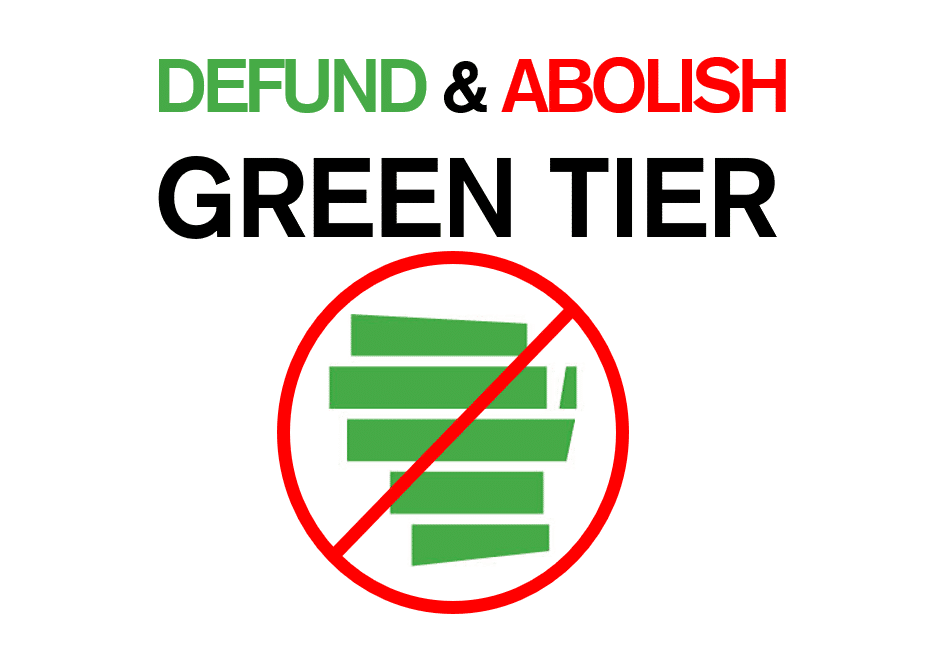Alert Summary
Wisconsin and several of its counties and municipalities are already implementing the United Nations’ 2030 Agenda for Sustainable Development — they are doing it through the “Green Tier” program. It is imperative that the Wisconsin Legislature stop this subversive scheme!
Take Action NowContact your Representative
Please help stop Agenda 2030 (being implemented via Green Tier) in Wisconsin by contacting your state representative and senator. Urge them to stand up for individual freedom, self-government, and the U.S. Constitution and to oppose all central-planning schemes such as Agenda 2030.
Clicking this button will take you to a page where you can send a pre-written letter, call your officials, and/or send video messages.

Wisconsin and several of its counties and municipalities are already implementing the United Nations’ 2030 Agenda for Sustainable Development — they are doing it through the “Green Tier” program. It is imperative that the Wisconsin Legislature stop this subversive scheme!
Green Tier is a program run by the state Department of Natural Resources (DNR). The program traces its beginning to 1998, when Governor Tommy Thompson signed a memorandum of understanding with Bavaria, in which the two states agreed to implement the UN’s Agenda 21 (now Agenda 2030). In 1999, the Legislature enacted an Agenda 21-inspired “Smart Growth” law, heavily encouraging localities to implement “comprehensive plans” (i.e., central planning), and expanding the impact of such plans.
Then, in 2004, the Legislature enacted Green Tier into law, and made it permanent in 2009 (primarily Sections 299.83 and 299.85 of the Wisconsin Statutes). Governor Jim Doyle and Scott Walker both signed executive orders expanding the program. Republicans and Democrats are both responsible for establishing this collectivist and globalist program, which remains fully in effect to this day.
Green Tier has two segments: one for companies and another for municipalities and counties. The program’s members are spread throughout Wisconsin.
Although billed as a “voluntary” program, Green Tier allows the DNR to penalize businesses that don’t adhere to “green” requirements and makes localities subservient to radical-leftist nongovernmental organizations (NGOs), rather than to their local residents and electorate. Additionally, Green Tier’s business aspect is tied to woke, leftist “Environmental, Social and Governance” (ESG) metrics.
On the municipality/county side, the NGO “1000 Friends of Wisconsin” is one of the “stakeholders” in this segment and was instrumental in establishing it. It notes several “Sustainable Development” goals that it wants communities to develop through Green Tier:
Among the recommendations were: reduced reliance on the automobile; increased transit options; traditional neighborhood design ordinances to increase housing density and better opportunities to develop local amenities such as grocery stores and shopping; local programs to encourage walking and transit; and better bicycling infrastructure to encourage bicycle commuting.
In other words, government central planning and collectivism in our daily lives.
Wisconsin Legislators must take action to stop the Green Tier program. At minimum, they must work to defund it in the state budget. Additionally, the Legislature must work to repeal Wisconsin’s various Green Tier and Agenda 21/2030-related statutes, and to ban local governments from cooperating with NGOs to implement Agenda 2030 “sustainable development” and from spending money to implement “green” policies.
The latter goals will be far more difficult as Governor Tony Evers will likely veto any bill doing such, and Republicans are two seats short from having a veto-proof majority. However, if two Democrats resign or are simply unable to be present, Republicans will be able to override gubernatorial vetoes. So, getting strong legislation enacted will be difficult, but not out of the question.
Contact your state legislators and urge them to defund and abolish Green Tier, along with every other program or statute implementing Agenda 2030 priorities.
Although we provide a way to easily email legislators, we know from long experience that it takes a lot more interaction with your legislators to get your point across than that provided by emails alone.
That's why we provide an easy way not only to email them, but to contact them by phone, tweet, and even video message them.
